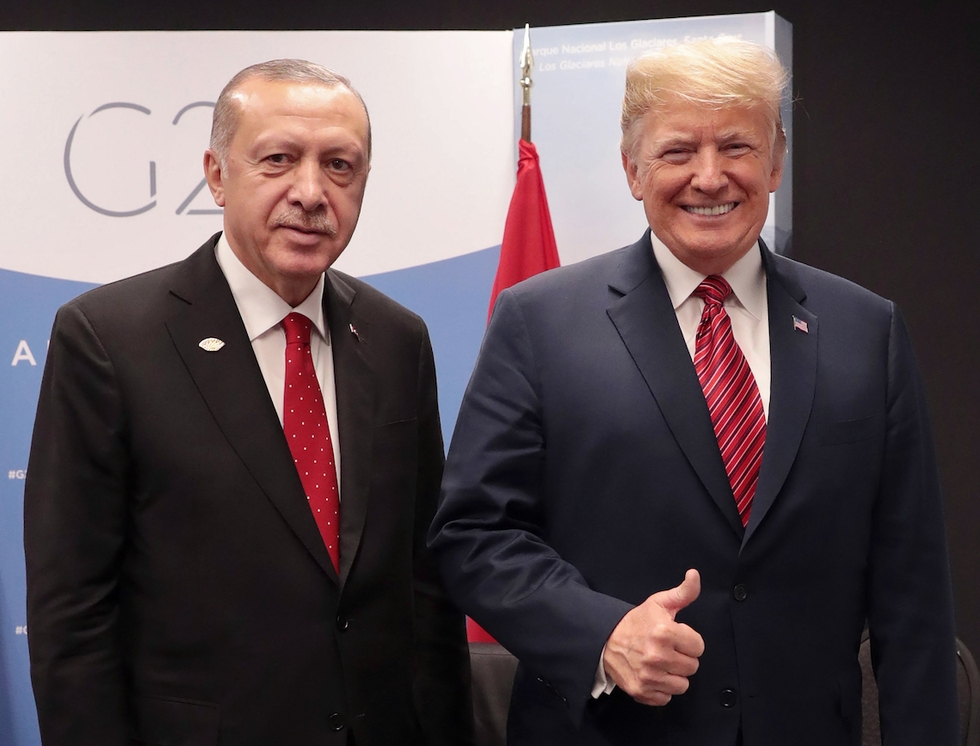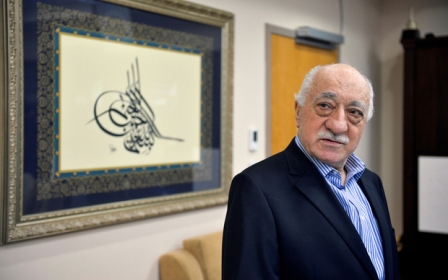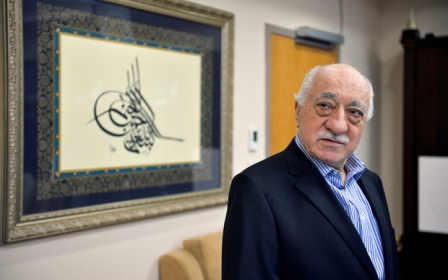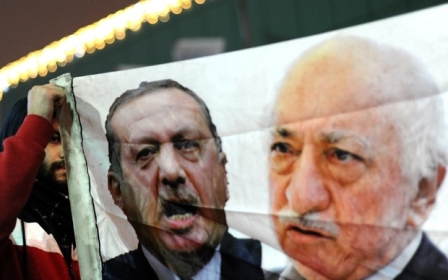Trump did not tell Erdogan he would extradite Gulen, White House official says

US President Donald Trump did not tell his Turkish counterpart that he intends to extradite US-based Muslim cleric Fethullah Gulen, a senior White House official told Reuters, contradicting recent statements from Turkey's foreign minister.
Trump "did not commit to extradite" Gulen during a meeting with Turkish President Recep Tayyip Erdogan at the recent G20 summit in Argentina, said the official, who spoke on condition of anonymity.
Turkey blames Gulen, a one-time ally of Erdogan who lives in self-imposed exile in the US state of Pennsylvania, of orchestrating a failed 2016 coup.
Ankara has repeatedly called on the Trump administration to extradite him to Turkey to face charges for his alleged crimes and the extradition has been a major source of tension between Washington and Ankara.
Gulen has denied the accusations against him.
On Sunday, Turkish Foreign Minister Mevlut Cavusoglu said Trump told Erdogan at their meeting in Buenos Aires that the US "was working on extraditing Gulen and other people".
Cavusoglu also said the FBI has launched nationwide operations against the Gulenist network in the US, Turkey's state-run Anadolu news agency reported on Monday.
"There is a serious investigation into [the Gulenist network] launched by the FBI in 15 states," Cavusoglu told the Turkish parliament, Anadolu reported.
"Moreover, arrests started in some states, including New Jersey."
Tension over extradition
The contradictory reports come as two former business partners of ex-Trump national security adviser Michael Flynn were indicted on allegations they secretly lobbied on behalf of the Turkish government to have Gulen extradited.
Flynn's former business partner, Bijan Rafiekian, was indicted on two criminal counts in the US state of Virginia, including conspiracy to act as an agent of a foreign government, Reuters reported on Monday.
According to an indictment unsealed on Monday, Rafiekian conspired with Turkish businessman Ekim Alptekin to illegally lobby US government officials and influence public opinion in the US against Gulen, the Washington Post said.
In mid-November, US media reported that Trump had instructed federal law enforcement agencies to examine legal ways he could extradite Gulen in order to get Turkey to ease its pressure on Saudi Arabia over the killing of journalist Jamal Khashoggi.
The Trump administration's requests were greeted with incredulity and anger by US officials, NBC News reported at the time. "At first there were eye rolls, but once they realised it was a serious request, the career guys were furious," an official said.
Turkey and the US are bound by a 1979 extradition treaty, which states that both countries must satisfy a series of legal procedures and meet evidential standards before an official extradition request is granted.
But a clause in the treaty states that extradition will not be approved for an offence deemed to be of “a political character”.
Middle East Eye propose une couverture et une analyse indépendantes et incomparables du Moyen-Orient, de l’Afrique du Nord et d’autres régions du monde. Pour en savoir plus sur la reprise de ce contenu et les frais qui s’appliquent, veuillez remplir ce formulaire [en anglais]. Pour en savoir plus sur MEE, cliquez ici [en anglais].




